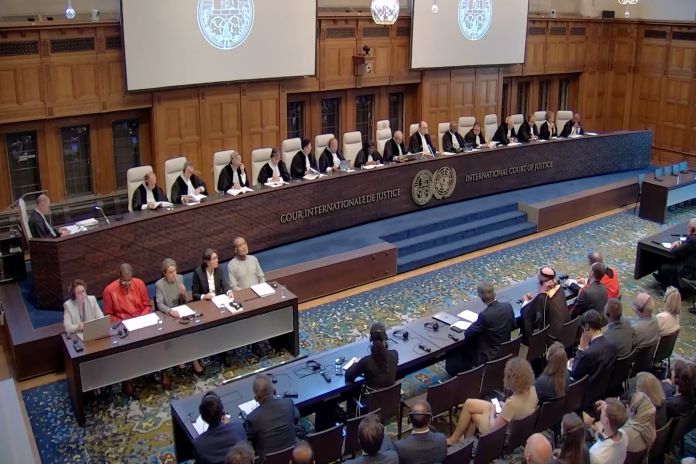The HAGUE – The UN International Court of Justice (ICJ) on Friday declared that Israel’s continued presence in the Occupied Palestinian Territory “is unlawful”, and that “all States are under an obligation not to recognize” the decades-long occupation.
The Court was responding to a request for an advisory opinion by the General Assembly on the legal consequences arising from the policies and practices of Israel in the Occupied Palestinian Territory, including East Jerusalem.
The advisory from the ICJ is a legal opinion provided by the Court on questions of international law.
Unlike judgments in contentious cases between States, advisory opinions are non-binding and are sought by United Nations bodies such as the General Assembly or the Security Council.
While not legally binding, advisory opinions can shape international policies, increase moral pressure, and unilateral measures adopted by individual States such as sanctions.
Israel’s obligations
In its advisory opinion, the ICJ concluded that Israel’s continued presence in the Occupied Palestinian Territory is unlawful and that it is under an obligation to bring to an end its unlawful presence “as rapidly as possible”.
Israel is also “under an obligation to cease immediately all new settlement activities and to evacuate all settlers from the Occupied Palestinian Territory,” the opinion continued, as well as “reparation for the damage caused to all natural or legal persons concerned.”
States’ obligations
It further stated that “all States are under an obligation not to recognize as legal the situation arising from the unlawful presence” of Israel.
States are also under the obligation to “not to render aid or assistance in maintaining the situation created by the continued presence of the State of Israel in the Occupied Palestinian Territory”.
International organizations’ obligations
For international organizations, including the UN, the Court noted the “obligation not to recognize as legal the situation arising from the unlawful presence” of Israel.
The ICJ further noted that UN, and especially the General Assembly and the Security Council, “should consider the precise modalities and further action required to bring to an end as rapidly as possible the unlawful presence of the State of Israel in the Occupied Palestinian Territory.”

Call for engagement
Following the issuance of the opinion, UN Secretary-General António Guterres reiterated his call for the parties to re-engage on the “long-delayed political path” towards ending the occupation and resolving the conflict in line with international law, relevant UN resolutions and bilateral agreements.
“The only viable path is the vision of two States – Israel and a fully independent, democratic, contiguous, viable and sovereign Palestinian State – living side by side in peace and security within secure and recognized borders, on the basis of the pre-1967 lines, with Jerusalem as the capital of both States,” his spokesperson said in a statement.
The statement also noted that the UN chief will promptly transmit the advisory opinion to the General Assembly, which had requested the Court’s advice.
“It is for the General Assembly to decide how to proceed in this matter,” the statement added.
Israel’s response
According to media reports, Israel’s Foreign Ministry rejected the ICJ’s opinion as “fundamentally wrong” and “blatantly one-sided”.
It also repeated its stance that a political settlement in the region can only be reached through “direct negotiations”.
General Assembly request
The General Assembly adopted a resolution in December 2022, which among other points requested the ICJ to provide its opinion under Article 96 of the UN Charter and Article 65 of the Court’s Statute.
The opinion lays out the legal consequences of Israel’s “ongoing violation” of the right of the Palestinian people to self-determination, from its prolonged occupation, settlement and annexation of territories occupied since 1967, and discriminatory measures, including those affecting Jerusalem’s demographic composition and status.
It also sought to understand how these policies and practices of Israel affect the legal status of the occupation and its legal consequences.





